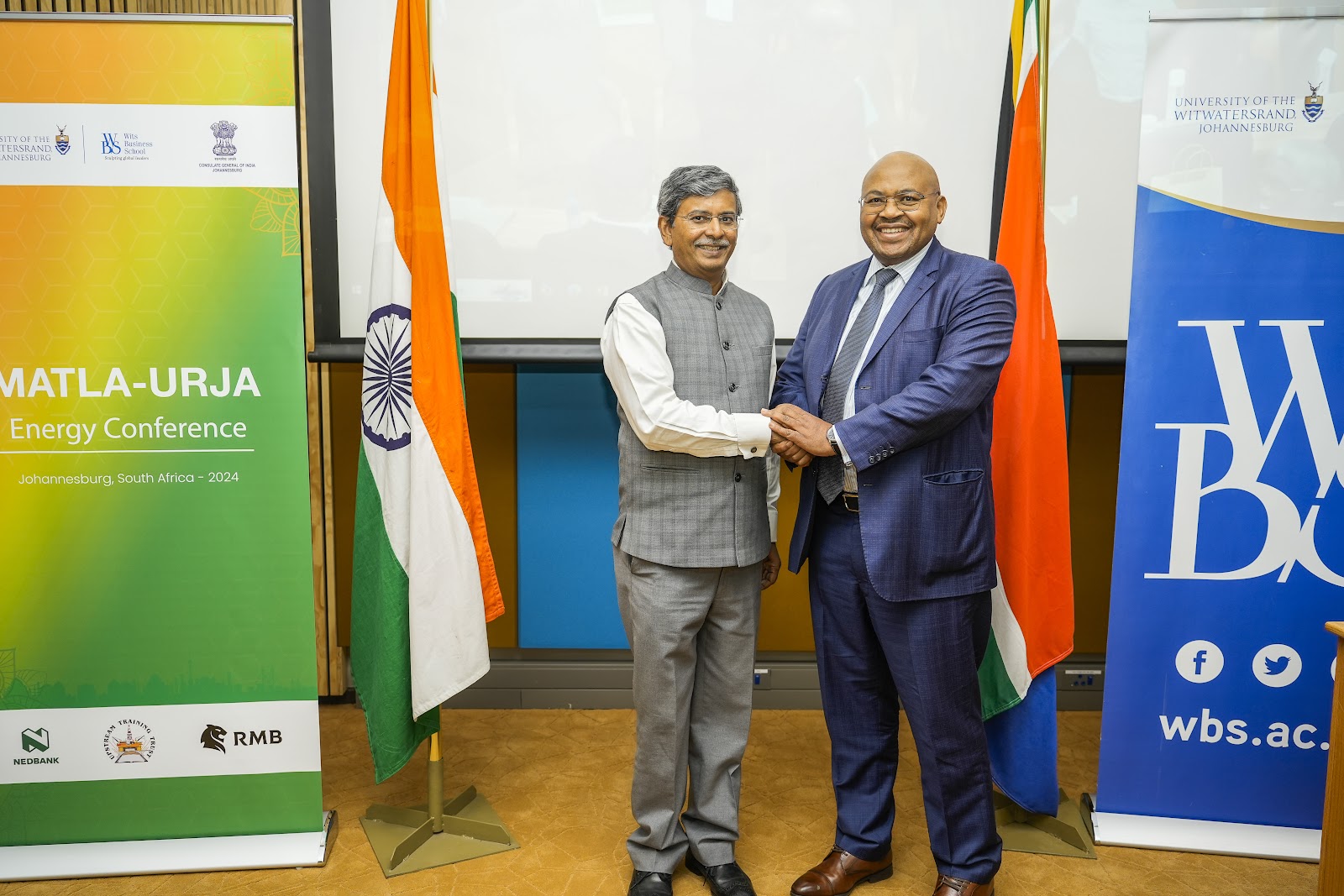Indian High Commissioner, Sh. Prabhat Kumar
Sh. Prabhat Kumar, High Commissioner of India to South Africa delivered an address at the Matla-Urja Energy Conference, held on 27–28 November at Wits Business School, detailing India’s transformative energy journey and its relevance to South Africa.
The High Commissioner highlighted India’s achievements in energy access, renewable integration and policy reforms that offer insights for South Africa as it navigates its energy challenges.
The High Commissioner reflected on India’s challenges with blackouts and load-shedding, similar to South Africa’s current energy crisis. Over the last decade, India transitioned from widespread energy shortages to becoming an energy surplus nation. Central to this achievement was the creation of a unified national grid in 2013 under the slogan *One Nation, One Grid*. This system enables seamless power transmission across India, ensuring energy generated in one region can meet demand anywhere in the country.
In 2019, India achieved universal electricity access, connecting every village and household. “We also made a promise that 40% of our capacity will be renewable by 2030. In October we reached 46% of the overall capacity of 452 gigawatts. But this goal was reached in 2021. This is our commitment that we have for the transition from the old economy to a green economy,” said Kumar.
The transformation relied on policy reforms and institutional strengthening. The 2003 Electricity Act unbundled generation, transmission and distribution to create a more competitive and efficient system. New institutions were established, including the Indian Renewable Energy Development Agency (IREDA) and the Ministry of New and Renewable Energy, both focused on advancing renewables.
The Bureau of Energy Efficiency also played a key role in energy conservation by promoting LED lighting, with India becoming a global leader in LED manufacturing. Recognising the importance of energy security, India developed strategic oil reserves and diversified its energy sources. The High Commissioner cited the importance of interdependence in energy, referencing India’s reliance on coal imports from South Africa and its plans to invest in critical minerals required for renewable technologies. “We buy coal from you (South Africa) in big quantities and we supply refined petroleum in big quantities. So in future, India will require critical minerals from South Africa and the rest of Africa,” Kumar continued.
India’s latest initiative, Surya Ghar Muft Bijli Yojana, aims to empower households with solar power. The government subsidises up to 60% of the cost for solar panel installations which allows households to generate their own electricity or sell excess power to the grid. This initiative reduces the burden on distribution companies while promoting decentralised energy access.
Kumar explained: “This government subsidises 2-3 kilowatt hours of power. A 40% to 60% subsidy will be given to those households that install solar panels. You can have that power and supply to the grid as well and also earn some money from that.” “These reforms are a result of continuous reforms in the electricity sector. What happened in 2003 when we implemented the Electricity act was that we unbundled the three things that Eskom is doing now: transmission, generation and distribution,” he said.
India has also established international alliances to advance renewable energy. The International Solar Alliance, with 110 member countries, promotes solar energy adoption worldwide, while the Global Biofuel Alliance focuses on ethanol blending in fuels. India’s success in ethanol blending, which has reached 15% and is targeting 20% by 2025, has benefited farmers while reducing dependence on imported oil.
 Indian High Commissioner, Sh. Prabhat Kumar and Head & Director of Wits Business School, Prof. Maurice Radebe
Indian High Commissioner, Sh. Prabhat Kumar and Head & Director of Wits Business School, Prof. Maurice Radebe
The High Commissioner concluded by identifying shared challenges and opportunities in the energy sector for both countries. Importantly he focused on a societal need to change.
“We advocate for behavioural changes in order to discourage wasteful consumption. We have this mission in life that was promoted by Mahatma Gandhi. All of you know Prime Minister Modi has lauded Mahatma Gandhi as one of the greatest environmental champions to have ever lived. We should learn from this great man,” he stated.